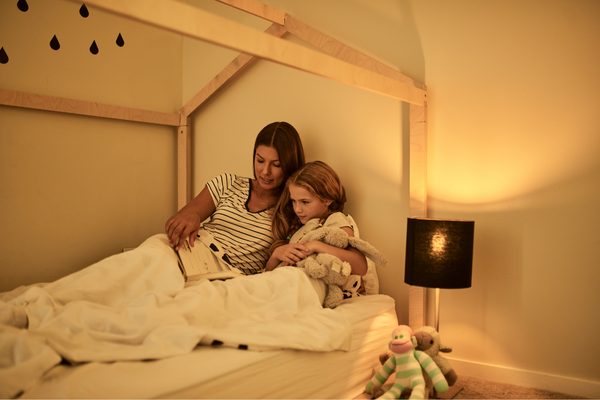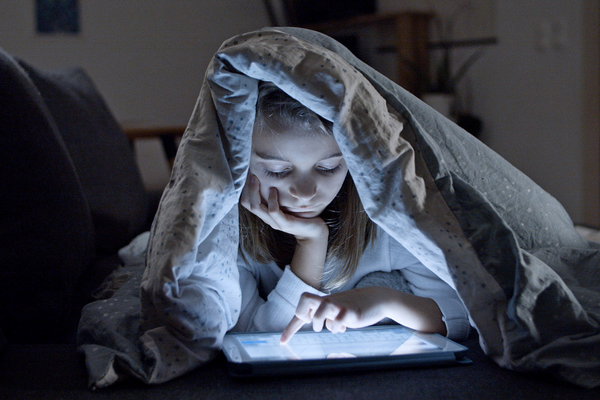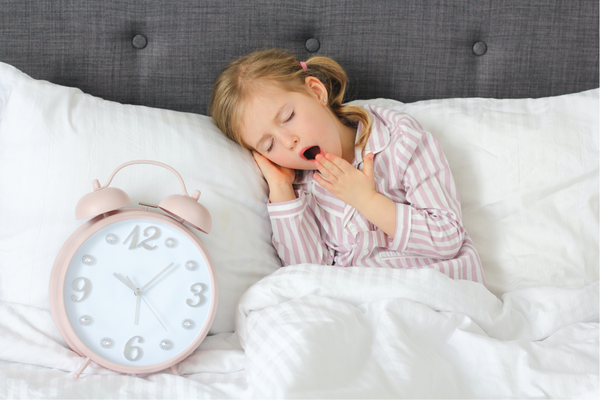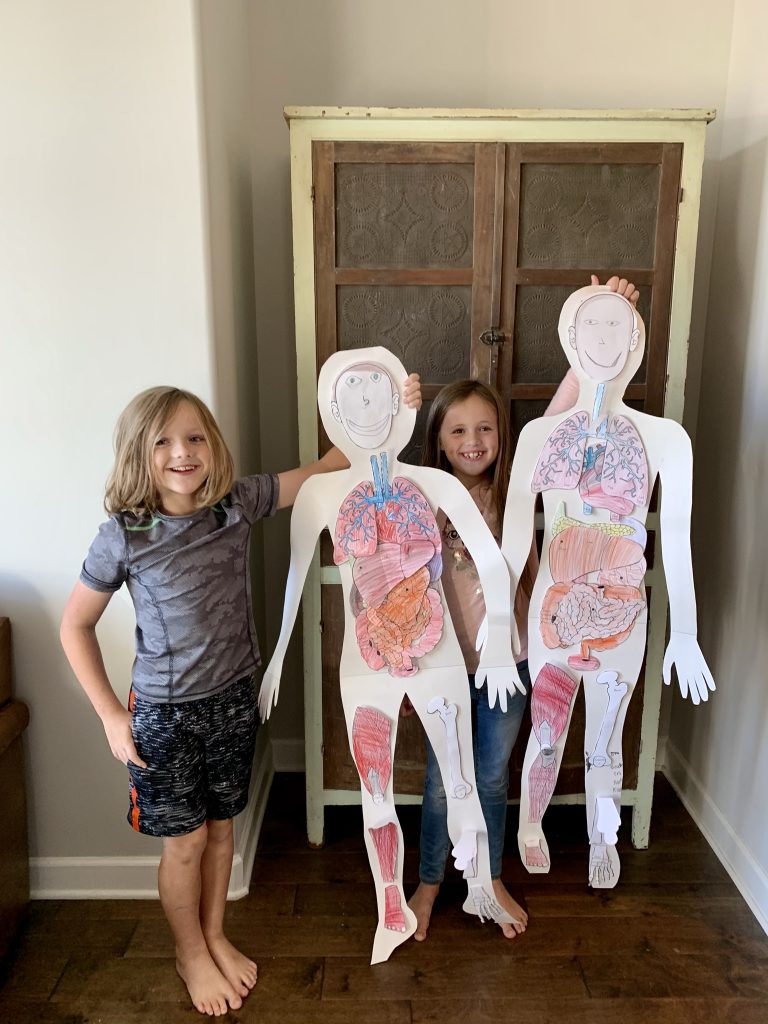10 Tips for Better Back to School Sleep

Calming down in the evenings and getting a good night sleep is a huge struggle in our family (for me and my kids). It may be our unique bodies or personalities, but we can’t just go 100 miles an hour all day, hit the bed, and fall into a deep sleep until morning. This is especially true for back to school sleep when we have to get in bed early and up with the alarm again.
I don’t think my family is an anomaly here. I’ve heard countless parents express that helping their children to fall asleep and stay asleep is a challenge. Every child is different so it requires some flexibility to find the patterns that will work for your family, but just the intentionality around the evening routine will go a long way. If you have an infant, start with a sleep routine HERE.

Let’s explore some of the ways we try to be intentional about setting the stage for the best rejuvenating sleep in our home at back to school time. Experiment with a combination of these techniques as you put together your own formula for success.
Steps to Take During the Day
1. Seek Out Natural Light
Even though we’re surrounded with artificial light, our bodies are still attuned to the sun. Open the curtains to give your child exposure to morning light and spend at least a half hour outdoors during each day.
2. Engage in Physical Activity
Regular exercise promotes restful sleep at any age. Encourage sports, games, and playtime. Ride bikes or throw a ball around in the backyard.
3. Maintain a Sensible Schedule
It’s harder to come to a complete stop when you’ve been rushing around all day. Pace yourselves. Regular eating patterns will also support a natural circadian rhythm.
4. Fill Nutritional Gaps
Picky eaters or not, we all have gaps in our nutrition that can keep us from being able to relax our minds, fall asleep quickly, and stay asleep through the night. Work with your healthcare provider or nutritionist to develop a plan ideal for your child.
5. Reduce Environmental Toxins
Chemicals, additives, preservatives, and allergens often interfere with sleep quality because our body is working overtime to try to clear them from our system. Select natural products for skincare and household cleaning, and try to avoid too many food with additives and preservatives.

Steps to Take at Night
6. Set a Consistent Bedtime
Aim to have your child go to bed and rise at the same time every day. As hard as this is, if we stick to a similar schedule on weekends and holidays the weekdays will be easier.
7. Provide Advance Notice
Older children will understand a warning that it’s 10 minutes until lights out. Even babies will start responding to cues like running bath water and putting on pajamas. The more “wired” your child is in the evening the more notice and cues they may need to make the transition.
8. Turn off Electronic Devices
Artificial light from televisions, IPads, smart phones, and computers stimulate our brains. Give your kids a curfew to turn off all devices a few hours (yes, hours!) before bed – and although I don’t follow this rule well, we should be doing the same for adults. For my teen that has to do homework on her computer late at night, we use blue blocker glasses.
9. Read Bedtime Stories
Reading time creates a great transition for sleep and a lot of happy memories. It’s an excuse to turn off the television, settle into bed, and let the imagination wonder – all things that help get our minds off the stress or anxieties of our day.
10. Use a Breathing App
I know we don’t want devices in the bedroom, but one exception we make is to listen to guided breathing before bed. There are researched psychological AND physiological responses our bodies have to just 3-5 minutes of this activity. Our favorite bedtime device (especially when stress and anxiety are keeping us up is the Calm Carry).
Your whole family will benefit from better rest with better physical and mental health. For kids this means better daytime behavior, better focus in school, and better ability to fight off colds. As adults, we will get more done in our work day, fight off depression and anxiety, and even have an easier time maintaining a healthy weight. In our home, we see improvements in back to school moods, attitudes, and ease us back into learning mode.
Already feel like your family is logging enough sleep? Remember, it’s not just about the hours you are in bed, but the quality deep sleep you are getting.









